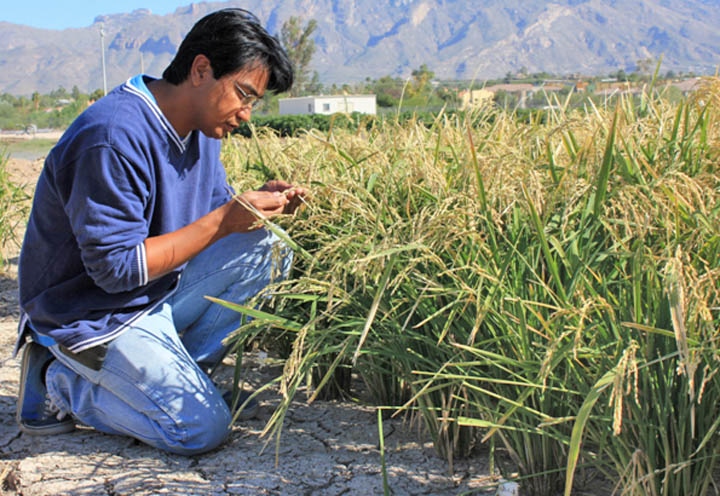
Arizona ideal for drought-tolerant rice development
With much drier and warmer than average weather conditions affecting much of Texas for more than a year, news that a rice researcher at the University of Arizona is developing desert-friendly rice varieties for U.S. and international growers is likely to be well received.
February 6, 2012

With much drier and warmer than average weather conditions affecting much of Texas for more than a year, news that a rice researcher at the University of Arizona is developing desert-friendly rice varieties for U.S. and international growers is likely to be well received. Dr. Paul Sanchez, a rice breeder and wild rice specialist, is researching promising heat-and drought-tolerant rice varieties that can be grown not only in the Arizona desert, but also other areas that are impacted by drought and extremely warm temperatures. The project is supported by Dr. Rod A. Wing, Antle professor and director of the Arizona Genomics Institute.
"This new undertaking was made in response to the increasing concern about the impact of climate change on rice production," Sanchez said. "Arizona is an ideal place for developing heat- and drought- tolerant varieties because of its high daily maximum temperature and low rainfall from late spring to early fall when rice can be planted."
Sanchez said the university is optimistic that the first heat-tolerant varieties could be released in 2013, and the first heat-and drought-tolerant varieties two to three years after that. "Drought and heat tolerance is a complex trait and evaluation is challenging," he explained. "Taking advantage of Arizona's natural arid environment made field evaluation possible and did not require simulation studies in the greenhouse or under artificial conditions." The researcher said it took five years from the identification of heat-and drought-tolerant wild rice species to successfully transfer the traits into cultivated rice.
"Promising rice varieties will be evaluated this year for distinctness, uniformity, stability and yields," Sanchez said. "We have generated interest from one farmer who is willing to grow the first Arizona bred rice and are seeking additional funding to support this activity."
You May Also Like



